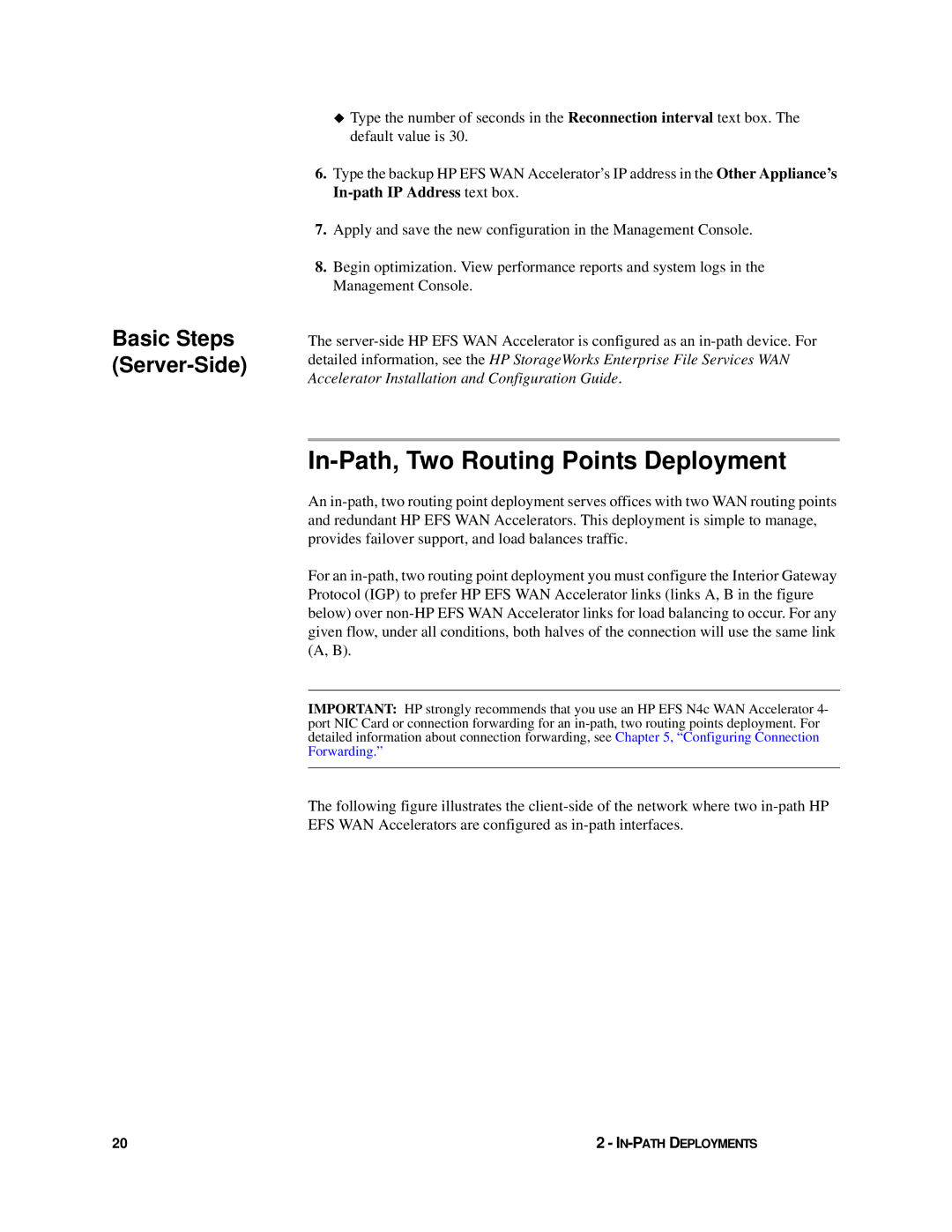Basic Steps (Server-Side)
Type the number of seconds in the Reconnection interval text box. The default value is 30.
6.Type the backup HP EFS WAN Accelerator’s IP address in the Other Appliance’s In-path IP Address text box.
7.Apply and save the new configuration in the Management Console.
8.Begin optimization. View performance reports and system logs in the Management Console.
The server-side HP EFS WAN Accelerator is configured as an in-path device. For detailed information, see the HP StorageWorks Enterprise File Services WAN Accelerator Installation and Configuration Guide.
In-Path, Two Routing Points Deployment
An in-path, two routing point deployment serves offices with two WAN routing points and redundant HP EFS WAN Accelerators. This deployment is simple to manage, provides failover support, and load balances traffic.
For an in-path, two routing point deployment you must configure the Interior Gateway Protocol (IGP) to prefer HP EFS WAN Accelerator links (links A, B in the figure below) over non-HP EFS WAN Accelerator links for load balancing to occur. For any given flow, under all conditions, both halves of the connection will use the same link (A, B).
IMPORTANT: HP strongly recommends that you use an HP EFS N4c WAN Accelerator 4- port NIC Card or connection forwarding for an in-path, two routing points deployment. For detailed information about connection forwarding, see Chapter 5, “Configuring Connection Forwarding.”
The following figure illustrates the client-side of the network where two in-path HP
EFS WAN Accelerators are configured as in-path interfaces.
20 | 2 - IN-PATH DEPLOYMENTS |

